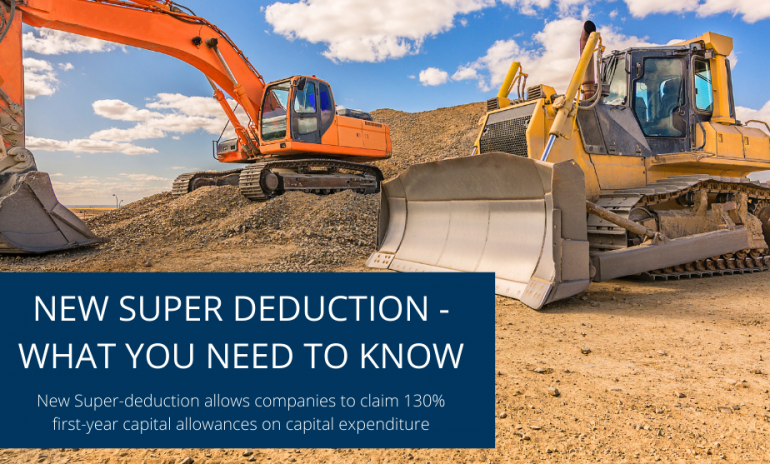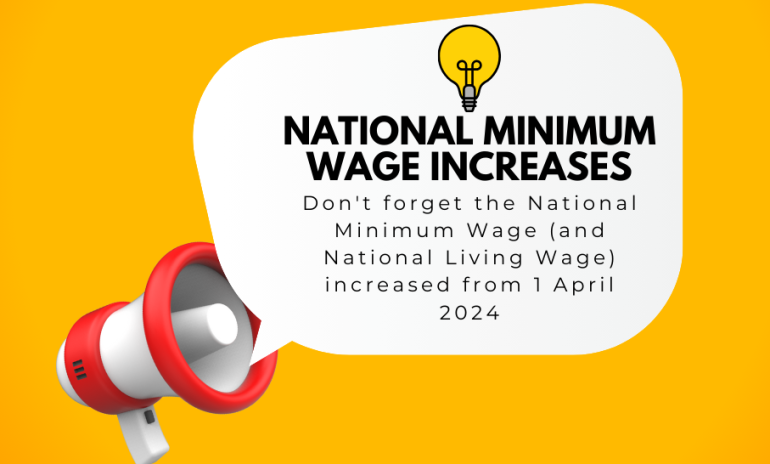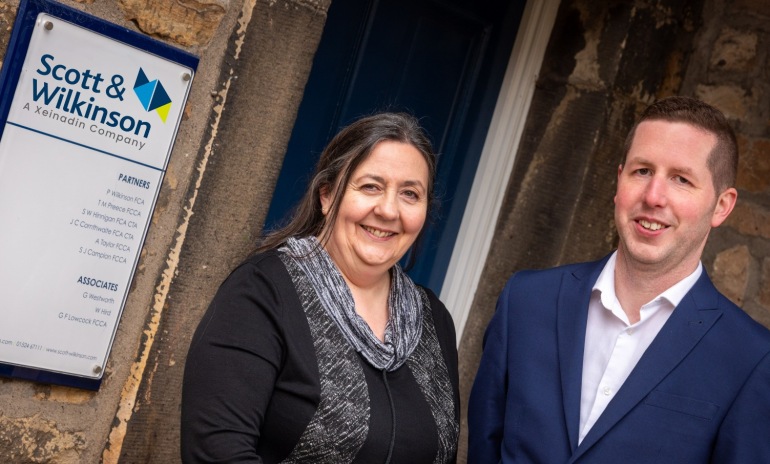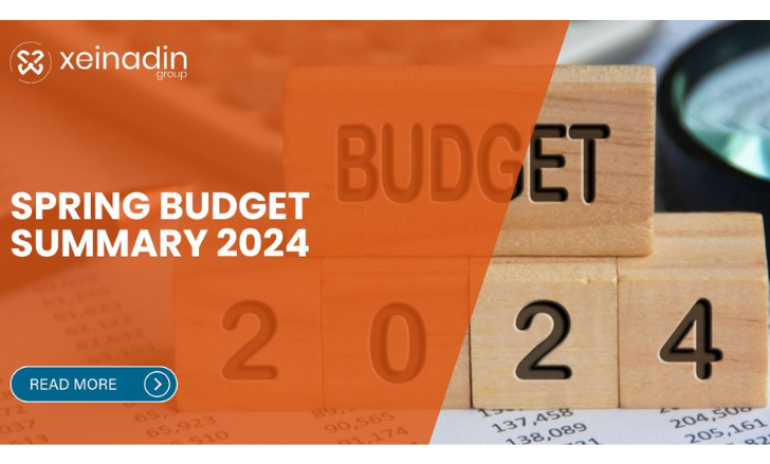New Super Deduction for Capital Allowances – What you Need to Know
Date: 10/05/21

As announced in the Budget 2021, the Treasury has introduced additional tax relief for certain plant and machinery purchased by companies. For costs incurred from 1 April 2021 until 31 March 2023, companies can claim 130% first-year capital allowances on qualifying new and unused main rate plant and machinery. The super deduction is not available to sole traders and partnerships.
What are capital allowances?
Capital allowances let taxpayers write off the cost of certain capital assets against taxable income. Normally the cost of capital assets is shown in the accounts as accounting depreciation and this is not tax deductible. However, capital allowances enable businesses to deduct the cost of these capital assets from their taxable profits.
The two main types of capital allowances are:
- Writing Down Allowances (WDAs) for plant & machinery - covering most capital equipment used in trade; and
- Structures and Buildings Allowances (SBA) - covering the construction and renovation of non-residential structures and buildings.
How will the super-deduction work?
If your company spends £1m of qualifying expenditure from 1 April 2021 then the deduction from taxable profit will be £1m x 130% = £1.3m. In terms of corporation tax savings, this could equate to a reduction in the company’s tax bill of £247,000 (£1.3m x 19%). Under the previous system, a company spending £1m on qualifying capital assets would receive a reduction in its tax bill of £190,000. So, this new relief gives an additional tax saving of up to 5.7% (or £57,000 in this example).
Qualifying purchases
The costs must be incurred by a business, liable to corporation tax, on new and unused plant and machinery. The amount of capital allowance deduction varies depending on the type of asset purchased:
- For assets that ordinarily qualify for the 18% main rate writing down allowance, the deduction is equal to 130% of the expenditure (the super-deduction); whereas
- For assets that ordinarily qualify for the 6% special rate writing down allowance, and where the annual investment allowance is not claimed, the deduction for the year of purchase is equal to 50% of the expenditure.
Exclusions to the super-deduction include:
- The final period of trading
- Cars
- Most types of long-life asset
- Plant or machinery leased out
Is the super-deduction really that generous?
In the 2021 budget the chancellor announced that from 2023 corporation tax rates would be increasing from 19% to 25% for those businesses earning over £250,000. Those businesses earning less than £50,000 would continue to pay corporation tax at 19% and there would be a marginal rate for those businesses earning between £50,000 and £250,000.
To prevent larger businesses backing off their investment in plant and machinery until after 2023 when the effective tax discount would be worth more, the chancellor has introduced the super deduction to provide a similar level of tax saving now. The tax discount today is effectively worth 24.7% of the cost of the plant and machinery (19% * 1.3). This compares to a tax discount of 25% from 2023 for companies with taxable profits over £250,000.
So, for those small companies earning under £50,000 there is a tax advantage in purchasing qualifying plant and machinery before 2023, but for larger companies they are likely to be able to secure the same, if not slightly better, tax saving in the future. Of course, tax is only one consideration in the timing of capital expenditure, where the needs of the business should always be the first priority.
Temporary Extension of Annual Investment Allowance
It is worth remembering that the Annual Investment Allowance (AIA) has only temporarily been increased to £1 million until 31 December 2021 (effectively £1.3m for companies under the new super-deduction). After this date the AIA could return to its former limit of £200,000.

Author: James Cornthwaite FCA CTA
A former pupil at St Aidan’s C of E High School, James attended Blackpool Sixth Form College and Lancaster University, graduating in 2004, gaining BSc. first class honours. He joined Moore and Smalley, Preston in 2005 and qualified as a...
0 Comment
Add your Comment
We have the ability to edit and/or delete posts and comments. Links should be relevant to the topics. Please note all comments are subject to review before inclusion.














Nobody has commented yet. Why not add one?